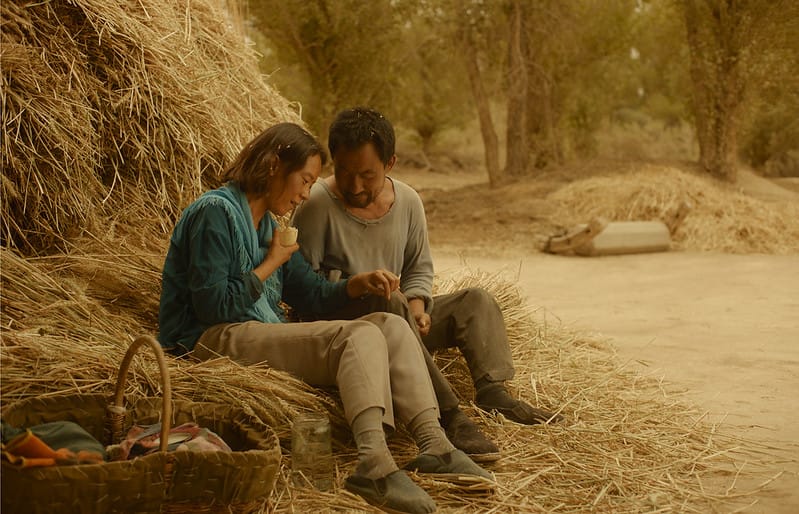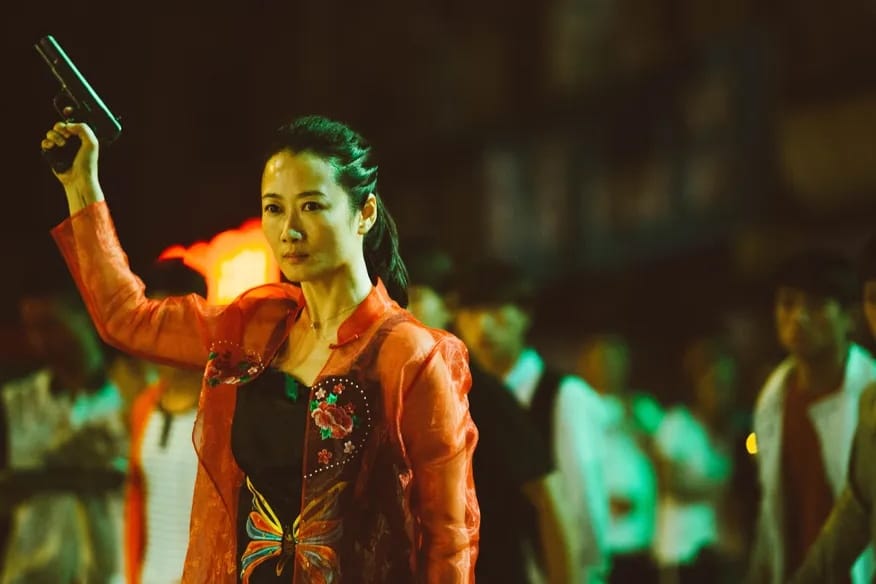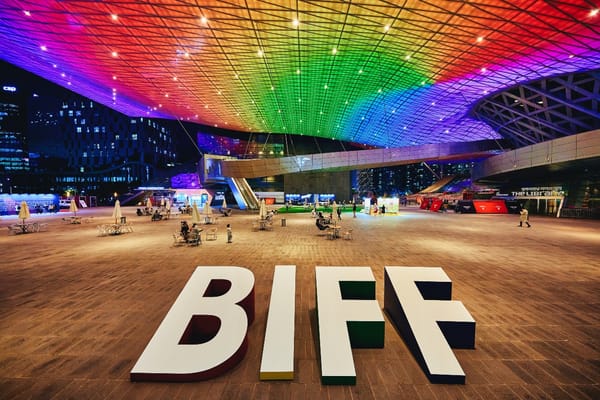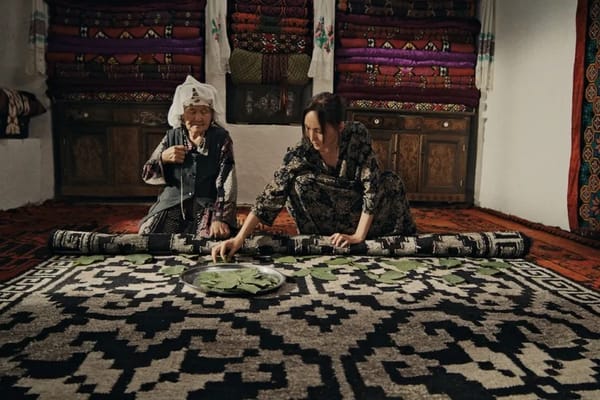Why Aren’t Chinese Films Travelling To International Festivals?

Chinese cinema is conspicuous by its absence at this year’s Cannes film festival, with only a few short films announced across the official selection and parallel sections. Directors Fortnight said last week that the Asian “surprise film” that it was hoping to announce, was a Chinese film, that it has now confirmed will not be ready in time for this year’s edition. Last year, there were also no Chinese films in Cannes main competition, although Wei Shujun’s Ripples Of Life premiered in Directors Fortnight and Na Jiazuo’s Streetwise was selected by Un Certain Regard.
Li Ruijun’s soulful portrait of provincial China, Return To Dust, premiered at this year’s Berlin film festival and has since been sold widely by German sales agent M-Appeal. Rotterdam film festival has long been a supporter of new independent Chinese cinema, and this year screened Gao Linyang’s To Love Again. But overall, the number of Chinese films playing in major festivals has declined substantially over the past few years. Production has been on-going throughout the pandemic, so why the decrease?
The pandemic has undoubtedly been a factor, as China’s borders have been mostly closed since January 2020, making it difficult for festival programmers to visit the country and for filmmakers to travel and share their projects. But in this age of Zoom and online markets, it’s not an insurmountable factor.
In many territories, filmmakers and producers have been hesitant to premiere films at festivals that were postponing dates, moving online or being held as hybrid events, unsure of the impact such a premiere would have. There’s also been the question of what would happen after the festival, as cinemas have been closed intermittently in many territories, so it’s been difficult to time a theatrical release. But that’s less of an issue in China where, due to censorship and the lack of a specialist circuit, even big arthouse names like Zhang Yimou, Jia Zhangke and Lou Ye can’t always rely on securing a domestic release.
Currently, there is of course, a huge pandemic-related issue for China, in that the country’s borders are being closed more tightly, and major cities locked down further, as it battles a series of Omicron outbreaks through its zero-Covid policy. On Thursday (May 12), China’s immigration authorities said they would impose tight restrictions on any “non-essential” overseas travel for Chinese citizens, which may throw a wrench in the plans of any Chinese filmmakers, sales agents and buyers who thinking of finally making the trip to Cannes.
But the current Covid outbreaks are a recent, if unfortunate, development. Inevitably, the other factor keeping Chinese films at home is plain old politics. In last week’s newsletter, I spoke of an ideological repositioning in China, but on reflection “repositioning” is the wrong word, as it’s more of a tightening of an ideology that has always existed, but combined with a rising form of nationalism and anti-Western sentiment that has accelerated during the pandemic (at least anti-Western sentiment wasn’t prevalent before China’s borders closed due to Covid-19).
It’s understandable that China wants to promote a national identity that is distinct from the prevailing cultural soft power of the West, but the current political headwinds are not just preventing certain films from entering China, they’re making it difficult for Chinese films to get out. These difficulties date back to 2018, a year in which Jia Zhangke’s Ash Is Purest White premiered in Cannes competition and three other Chinese films played in other sections. But in March that year, China announced it was shutting down the State Administration of Press, Publications, Radio, Film and Television (SAPPRFT) and moving film regulation under the propaganda department of the Chinese Communist Party (CCP).

The following year, Zhang Yimou’s One Second and Derek Tsang’s Hong Kong-China co-production Better Days were both pulled from Berlin at the eleventh hour due to “technical difficulties”. At this point, Chinese films started having trouble securing a second permit after the standard ‘dragon seal’ (long biao, 龙标 ), known as the ‘public screening licence’ (gongying xuke zheng, 公映许可证), which had always been required but previously never created any problems. Four Chinese films played in Cannes in 2019, including Diao Yinan’s The Wild Goose Lake in competition, but increasingly Chinese filmmakers were having to choose between having their films pulled from festivals if the permit wasn’t forthcoming, or going ahead without the permit and facing penalties back home.
While the China Film Bureau has never made its policy on international festivals clear, it’s understood filmmakers are under growing pressure to premiere their works at home through officially sanctioned Chinese film festivals, after which they’re free to venture forth on the international circuit. But wherever the premiere takes place, the final cut of the film, the one that gets the ‘gongying xuke zheng’ is the only version that can travel. Not a single frame, credit or on-screen caption can be changed after this point. This is obviously a major headache for any filmmaker who likes to tinker with a film after it is first presented in front of a festival audience.
Meanwhile, it appears that China does not have any particular issue with Cannes, as opposed to other international festivals, even though it played Kiwi Chow’s documentary about the Hong Kong protests, Revolution Of Our Times, last year. While the Oscars are not mentioned or broadcast in China, due to comments made by Nomadland director Chloe Zhao, coverage of Cannes in mainstream Chinese media has continued (although Revolution Of Our Times is obviously never mentioned). But Cannes’ decision to screen the documentary probably hasn’t helped. This is a dilemma now faced by all international festivals – brave programming choices might make it difficult for other Chinese films to premiere overseas.
At the same time, pressure has grown on Chinese filmmakers to make films with politically acceptable themes, to the extent that they are sometimes handed entire scripts that they’re expected to shoot. While this doesn’t affect small indie filmmakers so much, big name directors are being co-opted into making a string of patriotic comedies, dramas and action movies, few of which are likely to resonate with international audiences. Sadly, a growing number of Chinese (and by extension Hong Kong) filmmakers are deciding that it’s too difficult to tell the stories they want to tell in China, and get them out to the world, so are relocating to other countries.
Unless the situation changes soon, Chinese cinema will start moving towards being split between propaganda movies and a cinema of exile. What we don’t know is how long the current tightening will last – if it will relax after the CCP’s National Congress in November, or if China will ever want to emulate the kind of global cinematic influence that other East Asian nations like South Korea and Japan are developing, and realise this can only be achieved by loosening controls. Chinese cinema has high production values, there’s no question about that, but its real strength lies in its diverse voices and narratives, if only they were allowed to flourish. If those voices start to retreat from the world stage or simply disappear, there are plenty of other filmmaking nations waiting in the wings to step in.
PRODUCTION NEWS:
- Screen Australia announced $3.8m (A$5.5m) of funding for eight projects, including Mirrah Foulkes’s psychological thriller Runaway, to be produced by See-Saw Films, and animated feature sequel 200% Wolf (working title), along with two children’s films and four online projects. Based on Alice Munro's short story of the same name, Runaway is Foulke’s second feature following Judy & Punch (2019), which premiered at Sundance. Transmission Films is distributing in Australia with Cross City Films handling international sales.
- Dubai-based Front Row Filmed Entertainment is boarding Moroccan director Hicham Ayouch’s satirical comedy Abdelinho, starring Palestinian actor Ali Suliman, as a producer and distributor for the MENA region. Ayouch is also producing through his President Productions, while co-producers include Canal+ International, Paris-based Hecat Studio and Moroccan companies FreeMonkeyz and Sihamou Productions. Paris-based Urban Distribution International (UDI) is handling sales.
- Variety had an exclusive on US-born Belgian actor Rumana Molla making her directorial debut with Belgium-set Indian immigrant drama Minimum, starring Saba Azad and Geetanjali Kulkarni, and produced by Shiladitya Bora’s Platoon One Films and Radhika Lavu’s Ellanar Films.
- Emirati director Nayla Al Khaja is collaborating with Oscar-winning Indian composer A.R. Rahman on her upcoming feature Baab, which is set in the mountains of Ras Al Khaimah, one of seven emirates that comprise the United Arab Emirates (UAE).
- Variety also had an exclusive on Matt Brodlie and Jonathan Kier’s Upgrade Productions working with Japanese studio Shochiku on an eight-part adaptation of Mizumura Minae’s prize-winning A True Novel.
CORPORATE:
- Korea’s CJ ENM and its Studio Dragon production subsidiary are teaming with Naver Webtoon’s Line Digital Frontier on a Japan-based joint venture with the tentative name Studio Dragon Japan. CJ ENM’s Kang Cheolgu said in a statement that Studio Dragon Japan will “serve as the bridge between top content creators in Korea and Japan, and will act as a gateway for these top IPs to enter the global market”. It joins CJ ENM’s existing production stable of Studio Dragon, Endeavor Content and the recently-launched CJ ENM Studios.
- London and Singapore-based 108 Media is acquiring a majority stake in Malaysian production outfit Revolution Media (formerly Ideate Media), headed by veteran producer Zainir Aminullah, which has credits including hit action adventure Tombirou and Netflix series The Ghost Bride. Revolution will work with 108 Media on its upcoming production slate, which includes historical drama series Mrs Raffles, to be shot in Malaysia and North America, action series I Am Vash, UK crime series Inspector Singh, WWII drama The Undone Years and family sports feature Ten.
CANCELLED:
- Hindi-language film The Kashmir Files has been banned in Singapore by the InfoComm Media Development Authority (IMDA) due to concerns it could “cause enmity between different communities”. Directed by Vivek Agnihotri and backed by ZEE5, the film is the highest-grossing Hindi-language release in India so far this year, taking around $32m (Rs2.5bn), but was accused of stirring up anti-Muslim sentiments due to its depiction of the exodus of Hindu Pandits from the state of Kashmir in the early 1990s.
CURATED:
- Sydney Film Festival (June 8-19) unveiled the 12 titles in its competition section, which includes Catalan drama Alcarras, winner of the Golden Bear at this year’s Berlin film festival; Davy Chou’s Return To Seoul, which will premiere in Cannes, and two Australian titles – Del Kathryn Barton’s Blaze and Goran Stolevski’s You Won’t Be Alone.

- Cairo-based Arab Cinema Centre (ACC) announced the nominations for the sixth edition of the Critics Awards for Arab Films, with Jordanian director Bassel Ghandour’s The Alleys and Egyptian director Omar El Zohairy’s Feathers racking up the most nods. The winners will be announced during the Cannes Film Festival.
- Saudi producer Mohammed Al Turki (Arbitrage, 99 Homes) has been appointed CEO of the Red Sea Film Festival Foundation, heading a team that includes managing director Shivani Pandya; international programming chief Kaleem Aftab; director of Arab Programs & Film Classics, Antoine Khalife; marketing director Samaher Mously; Emad Eskander, head of the fund; and Red Sea Souk manager Zain Zedan. The second edition of the festival will be held in Jeddah from December 1-10.
SOLD:
- Film Constellation has sold Saim Sadiq’s debut feature Joyland, the first Pakistani film to be selected in Cannes, to French distributor Condor. The film, which premieres in Un Certain Regard, revolves around an extended family whose youngest son joins an erotic dance theatre and falls for an ambitious trans starlet. WME Independent is repping North American rights.
STREAMING UDPATES:
- Indian streamer ZEE5 is partnering with BBC Studios India on a slate of Hindi-language originals based on UK formats, starting with an adaptation of drama series The Broken News, created by Mike Bartlett in 2018. Vinay Waikul will direct the Hindi version, revolving around two warring news channels in Mumbai, with a cast including Sonali Bendre (Ajeeb Daastaan Hai Ye) and Jaideep Ahlawat (Paatal Lok).
- Variety had an exclusive on Mumbai-based Banijay Asia striking a deal with ITV Studios-owned Armoza Formats for an Indian adaptation of French-language Canadian mini-series Vertige.
OBITUARY:
- South Korean actress and former Busan International Film Festival co-chair Kang Soo-youn died on Saturday, May 7, following cardiac arrest. She was 55 years old. Starting her career as a child actress in the 1970s, she was awarded the best actress prize at the Venice Film Festival in 1987 for her role in Im Kwon-taek’s The Surrogate Womb. Her credits also include Im’s Come, Come, Come Upward, O Byoung-chul’s Go Alone Like Musso’s Horn and Im Sang-soo’s Girl’s Night Out. From 2015 to 2017, she was co-chair of the Busan film festival with one of its founders, Kim Dong-ho, serving as a neutral force during the turbulent period when the festival had conflicts with both the Korean government and the local industry. Kim Dong-ho headed funeral arrangements including a memorial ceremony held on Wednesday, May 11.
WHAT I’M READING:
- Eric Kohn writing in IndieWire and Geoffrey Macnab in Screendaily had some interesting takes on the current fallout at Rotterdam film festival, an important destination for Asian independent cinema, which recently laid off a large number of senior programmers and some staff:
Why the Film Industry Isn’t Doing Enough to Support Programmers (Column)
Rotterdam’s restructure provokes debate as festival poised for revamp of programming team
- Screendaily’s Jeremy Kay writes ‘must-read’ curtain-raisers for all the big international markets, and in this year’s Cannes Marche piece looks at how the loss of the China market is hurting US indies:
Industry expects buzzy Cannes market but smaller packages




